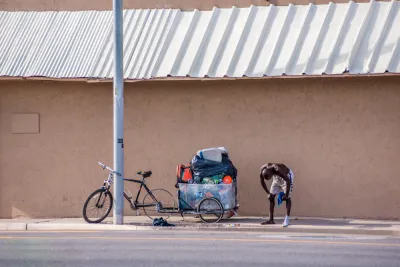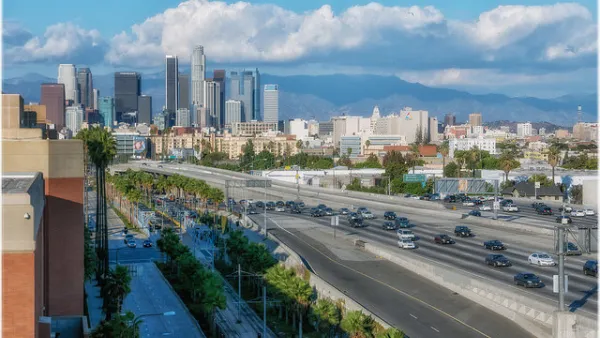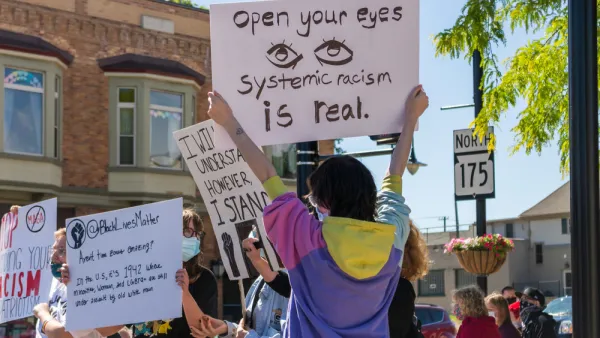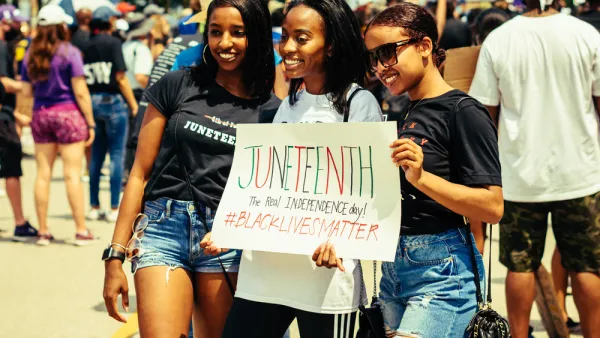The people living in urban heat islands are much more likely to be inhabited by low-income people of color, and the roots of the environmental justice issue can be found in planning history.

Kale Williams shares news of a new study that connects urban heat islands (areas where temperatures are exacerbated by the built environment) to a history of racist land use regulations.
Now, a new study from Portland State University is showing, for the first time, that areas prone to excessive heat are disproportionately populated by low-income communities and people of color due to racist housing policies that stretch back more than a century.
Williams summarizes more of the study's findings:
Nearly every city included in the study saw higher temperatures in neighborhoods that were historically subject to discriminatory housing policies, with poorer areas seeing averages temperatures about five degrees higher than their wealthier counterparts. And, of the 108 urban areas analyzed, Portland came in with the worst temperature discrepancy between rich and poor, a difference of almost 13 degrees.
Jeremy S. Huffman, Vivek Shandas, and Nicholas Pendleton wrote the study, which was published in the Climate journal.

Analysis: Cybertruck Fatality Rate Far Exceeds That of Ford Pinto
The Tesla Cybertruck was recalled seven times last year.

National Parks Layoffs Will Cause Communities to Lose Billions
Thousands of essential park workers were laid off this week, just before the busy spring break season.

Retro-silient?: America’s First “Eco-burb,” The Woodlands Turns 50
A master-planned community north of Houston offers lessons on green infrastructure and resilient design, but falls short of its founder’s lofty affordability and walkability goals.

Test News Post 1
This is a summary

Analysis: Cybertruck Fatality Rate Far Exceeds That of Ford Pinto
The Tesla Cybertruck was recalled seven times last year.

Test News Headline 46
Test for the image on the front page.
Urban Design for Planners 1: Software Tools
This six-course series explores essential urban design concepts using open source software and equips planners with the tools they need to participate fully in the urban design process.
Planning for Universal Design
Learn the tools for implementing Universal Design in planning regulations.
EMC Planning Group, Inc.
Planetizen
Planetizen
Mpact (formerly Rail~Volution)
Great Falls Development Authority, Inc.
HUDs Office of Policy Development and Research
NYU Wagner Graduate School of Public Service




























